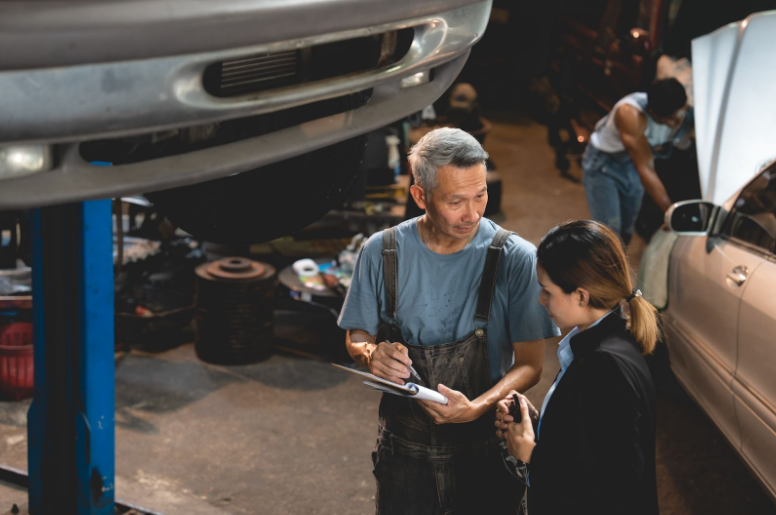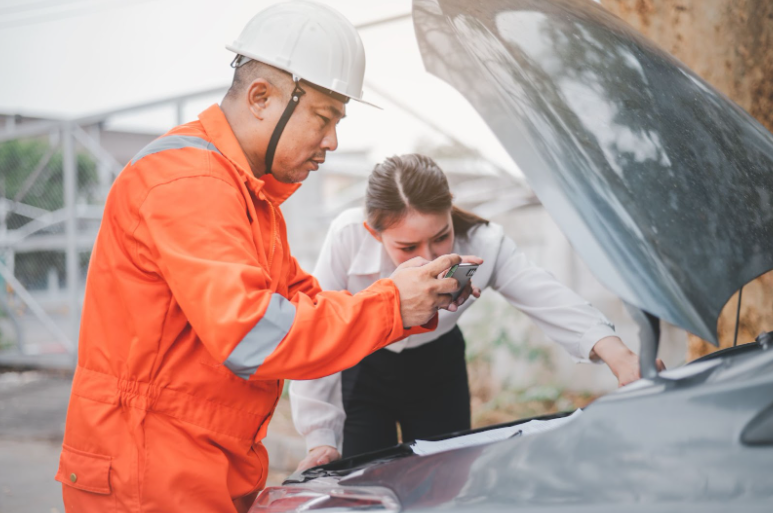Expert Tips for Inspecting a Used Car Before Buying: Questions to ask when buying it

What to Look for When Buying a Used Car
Examining the Vehicle
Inspecting the vehicle before you buy a car is crucial, especially when considering a used car. Start by checking the tires for any signs of wear and tear, which could indicate how many miles the car has been driven. Next, look for any uneven wear on the tires that may be a sign of brake issues. It's also important to ask the seller about the vehicle identification number to check for any recall or defect information. A thorough inspection of the car’s air conditioning system, brakes, and glass to make sure there are no cracks can help you decide whether or not to buy the car.Before buying a new car, it's also important to check online resources such as CarsXE, Kelley Blue Book, and Carfax to determine the value over time and history of the car. Dealerships and dealers should be able to provide you with a car inspection report, but it's always wise to do your own inspection as well. Ask the right questions and look under the hood, check the wheel wells and body for any signs of leaks or damage that could indicate that the car was used roughly.Shopping for a used car can be overwhelming, but knowing what to look for can help you decide on the right car. Always ask when buying a used car about the history, any previous accidents, and the reason for selling the car. Inspecting the vehicle thoroughly can help you decide if it's in good shape and worth your investment. Don't forget to test drive the car you're considering to ensure everything is in working order.
Checking the Mileage
Checking the mileage of a used-car is crucial before finalizing the deal. It is recommended to take your time and thoroughly inspect the vehicle. Start by checking the body for any signs of water damage, such as cracks or large stains. Make sure to also inspect the hood and trunk for any indications of water damage. Open and close all doors and windows to check for proper functioning. Inspect the rubber hoses and belts under the hood for any cracks or signs of wear. Look underneath the car for any leaks or rust. Check the fluid levels, including transmission fluid and tailpipe emissions. Test drive the car to ensure the transmission and safety equipment work properly. Finally, check the license plate number and vehicle history report for any red flags, like being deemed a total loss by the insurance company. A high-mileage car may have less value and higher risk factors, so it's important to do your due diligence before purchasing.
Considering a Vehicle History Report
When considering a vehicle history report, it is important to check to see if the car has been in any previous accidents or had any major repairs. These reports can also give insight into the make and model of the vehicle and its overall condition. Websites like Edmunds and CarsXE are great resources for obtaining this information, along with Consumer Reports and the National Highway Traffic Safety Administration. By reviewing this information before purchasing a vehicle, consumers can avoid potential issues like blind spots or purchasing a vehicle without the proper car insurance. Additionally, a vehicle history report could indicate water or flood damage, saving a buyer from making a costly mistake.
Questions to Ask When Buying from a Private Seller

Getting the Vehicle Inspected by a Mechanic
When purchasing a used vehicle, it is essential to have it inspected by a qualified mechanic before making the final decision. A mechanic will be able to thoroughly examine the vehicle and provide insight into any potential problems or necessary repairs. This inspection can save you from buying a car with hidden issues that could end up costing you a lot of money in the long run.
It is also a good idea to research the automotive value of the vehicle before purchasing. CarsXE's Vehicle Market Value API can provide you with an estimate of the vehicle's worth based on its make, model, and condition. This information can give you bargaining power when negotiating with the dealership or private seller.
Reviewing the Vehicle's Maintenance Records
When purchasing a used vehicle, one of the most important steps is reviewing the vehicle's maintenance records. This information can provide valuable insights into how well the car has been taken care of by previous owners. By looking at the maintenance records, you can see if regular maintenance tasks like oil changes, tire rotations, and brake inspections have been performed on schedule. This can give you a better idea of the overall condition of the vehicle and help you determine if it has been well-maintained. Sites like Kelley Blue Book or Edmunds can also provide valuable information on the typical maintenance schedule for a specific make and model, so you can compare the records against their recommendations. Overall, reviewing the vehicle's maintenance records can help you make a more informed decision when purchasing a used car.
Negotiating the Best Deal
When it comes to negotiating the best deal, it's important to approach the situation with a clear strategy in mind. Begin by doing your research to understand the current market value of the product or service you are interested in. This will give you a solid foundation to base your negotiations on. Next, define your goals and boundaries before entering into any discussions. Knowing what you are willing to compromise on and what you are not will help you stay focused and confident during the negotiation process. Remember to stay calm and composed, and avoid getting emotional or aggressive. Be willing to walk away if the terms are not favorable to you, as this can often lead to a more favorable outcome in the long run. Lastly, be prepared to listen and be flexible in finding a mutually beneficial solution that satisfies both parties.
Tips for Test Driving a Used Car

Checking for Mechanical Issues
Checking for mechanical issues is crucial to ensure the safety and performance of a vehicle. It involves inspecting various components such as the engine, brakes, and suspension system. Regular maintenance and diagnostics can help prevent potential problems and avoid costly repairs in the future.
Assessing the Vehicle's Handling
Checking for Mechanical Issues
Regular maintenance checks are essential in identifying potential mechanical issues in a vehicle. From checking the engine oil levels to inspecting the brakes, these tasks can prevent major breakdowns or accidents. It is important to address any issues promptly to ensure the safety and performance of the vehicle.
Additionally, having a professional mechanic conduct a thorough inspection can provide peace of mind and prevent costly repairs in the future. Ignoring mechanical issues can lead to more severe damage and compromise the overall functionality of the vehicle. Being proactive in checking for mechanical issues can ultimately save time and money in the long run.
How to Inspect the Vehicle for Signs of Wear and Tear

Checking for Rust and Corrosion
When inspecting for Rust and Corrosion, it's important to thoroughly examine all metal surfaces for any signs of damage or deterioration. Check for discoloration, flaking, or pitting, especially in areas exposed to moisture or salt. Regular maintenance and early detection can prevent costly repairs in the future.
One way to prevent Rust and Corrosion is by applying a protective coating or sealant to metal surfaces. This can help create a barrier against moisture and other corrosive elements. Additionally, keeping metal surfaces clean and dry can also help prevent the formation of rust and corrosion.
Examining the Exterior for Dents and Scratches
Examining the exterior of a vehicle for dents and scratches is an important step in maintaining its appearance and value. By carefully inspecting the body of the car, you can identify any imperfections that may need to be addressed. This includes checking the doors, hood, trunk, and bumpers for any signs of damage.
Inspecting the Interior for Wear and Tear
Inspecting the interior for wear and tear is an important aspect of maintaining the overall condition of a vehicle. Checking for signs of damage such as cracks, scratches, and stains can help prevent further deterioration and ensure the longevity of the interior components. It is recommended to inspect the seats, dashboard, carpets, and upholstery regularly to identify any issues early on.
Key Questions to Ask the Seller When Buying a Used Car
Asking About Any Previous Accidents
When purchasing a new vehicle, it is important to ask about any previous accidents that may have occurred. This information can help you assess the potential risks and damages associated with the car. It is crucial to be transparent and upfront with the seller to make an informed decision.
Inquiring About Any Ongoing Maintenance Needs
Inquiring with the homeowner or property manager about any ongoing maintenance needs is crucial to keeping a property in good condition. Regular maintenance checks can help prevent costly repairs down the line. It is important to stay proactive and address any issues as soon as they arise to ensure the property remains in top condition.
Clarifying the Terms of Sale and Warranty
Clarifying the Terms of Sale: Before making a purchase, it is important to fully understand the terms of sale. This includes the price, payment methods accepted, and any additional fees or charges that may apply.
Warranty Information: Understanding the warranty terms is crucial in case of any issues with the product. It is important to know what is covered under the warranty, the duration of coverage, and any steps that need to be taken to make a claim.
Tips for Negotiating the Best Deal on a Used Car
Knowing the Market Value of the Vehicle
Knowing the market value of a vehicle is crucial when buying or selling. One way to determine this value is by looking up the VIN number, which provides information about the car's history, specifications, and more. It can help you negotiate a fair price and avoid overpaying or underselling.
Highlighting any Identified Issues During Negotiations
Identifying any issues during negotiations is crucial to ensure effective communication and problem-solving. By highlighting these challenges early on, both parties can address them and work towards finding solutions. This open and transparent approach can lead to a more successful and mutually beneficial agreement in the end.
Learn about any used car through CarsXE’s Vehicle History Report API and Vehicle Market Value API, the top tier car data API vendor in the automotive industry.